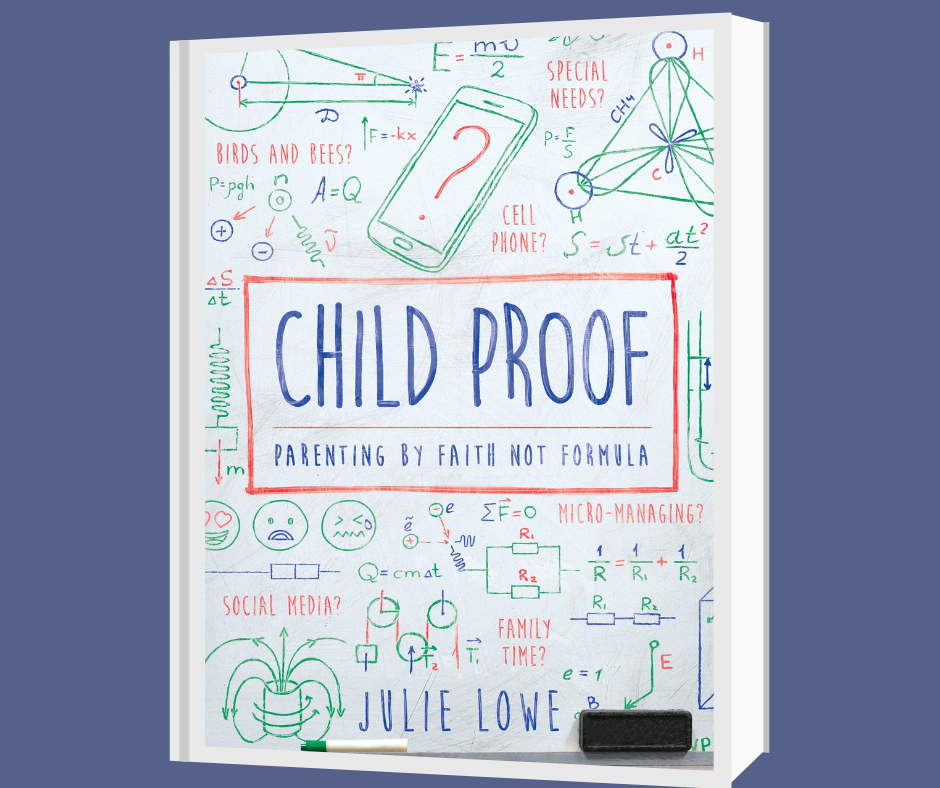Book Reviews
Child Proof: Parenting by Faith, Not Formula, by Julie Lowe | Review by Rosa Byler

Bringing up children is probably the most common and yet the most significant responsibility in life, judging by the number of books on the subject—and while acknowledging that there are no foolproof formulas, most of us still scan the latest publications! Child Proof, despite its puzzling title, is worthy of more than just a cursory read. Rather than laying out programs, formulas, and steps to success, Julie Lowe describes Christ-centered parenting as “asking God for daily help…to cultivate God’s character and express His love in your family life.” (28)
The book is well-written, easy to read, and sprinkled liberally with practical teaching and examples from real life; yet its main strength lies in its emphasis on knowing and loving God. Only then will we seek to model our parenting after His fatherly care, applying biblical truths and principles in ways specific to our own families. Lowe cautions that this does not mean compromising biblical truth but rather contextualizing it to individual situations—which helps to avoid frustration when we realize the “ideal” home is impossible.
We tend to base our parenting on the traditions we grew up with, assuming those to be scriptural. The Lowes’ unusual family structure compelled them to look more intentionally—as we all should—at “Scripture, the gospel, and conventional parenting ideals” to see how those applied to them. (Before marrying in her thirties, Lowe fostered two sisters, whom the couple adopted. Within five years they adopted two brothers and later two more boys; one child suffers from a degenerative disease leading to eventual blindness. They continue to provide foster care.)
Child Proof is divided into two sections, with a hefty two thirds laying groundwork for faith-based parenting. The second portion applies these principles to situations of specific difficulty, from emotionally/physically disabled or unrepentant children to the more general problems of boredom and ingratitude. Lowe spends a short chapter addressing technology (parents need a working knowledge of social media) and one on the importance of practice and role-playing (teach good habits such as prayer relationally, so that they do not become loveless rituals).
Nurturing conversations, whether pleasant or difficult, and forgiveness are two basic principles of Christ-centered parenting. The Lowes’ guidelines for family conversation are based on Eph. 4:29-32. Do words and actions build up or tear down, give life or bring corruption? Families can exist on “fast-food” interactions, which communicate needs but lack meaningful intimacy and true knowing of each other. Forgiveness “fosters a home filled with graciousness, willingness to overlook offenses, and persevering love that does not give up.” (37)
Becoming an expert on your family means learning each child’s strengths, weaknesses, gifts, and fears in order to help them know themselves before God and see how the gospel relates particularly to them. This includes children with developmental delays as well as those who are fearful/anxious, defiant/oppositional, or silent/withdrawn. Some respond well to rhythms and routines; others need more grace and extra time. Parental awareness and proactive presence are crucial to seeing and dealing with destructive patterns that creep in. Lowe, a family counselor, expresses concern at the increasing cultural trend toward parental passivity—parents occupying rather than engaging their children.
All families have rules to help establish order and safety and provide instruction, not to mention effective operation of the household. Lowe examines the larger purpose of rules, distinguishing between the morally-based and those that are simply functional. Consequences help to teach children that “every decision they make impacts themselves and others” (88) but Lowe cautions against the one-size-fits-all approach; fairness and equality are not the same.
Child Proof is an excellent reminder that for numerous facets of life, the Bible does not spell out detailed specifics. Parenting is one of those. The Christian life itself is not so much a list of rules as it is a relationship with God Himself, humbly recognizing our need and asking always for His wisdom to guide us. While parents at any stage of the process will benefit from this book, the principles laid out for faith-based parenting will apply to other situations as well.